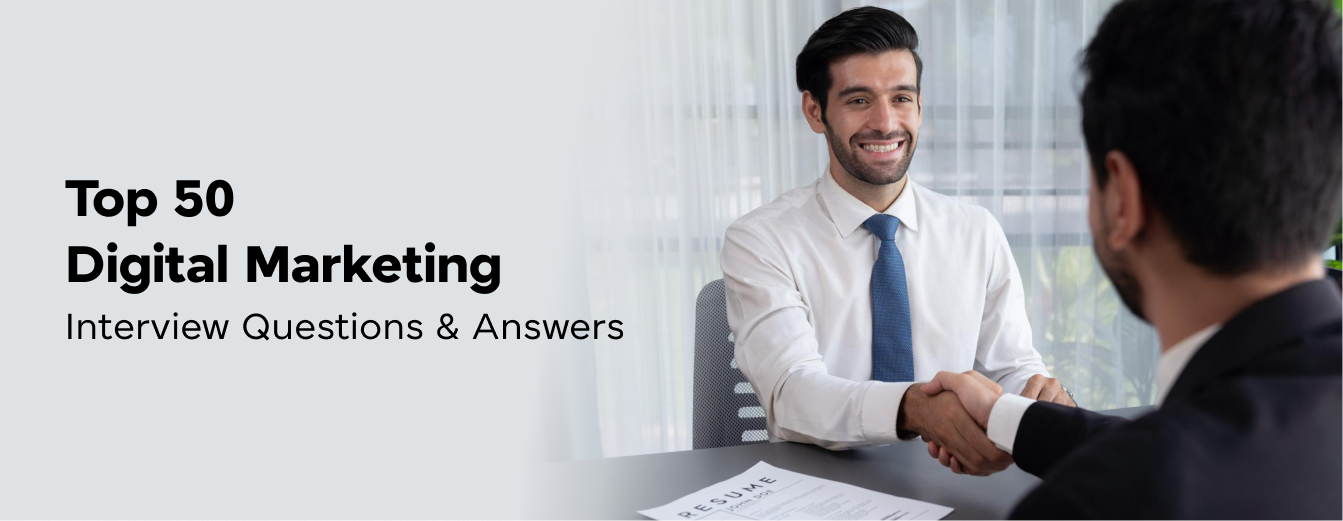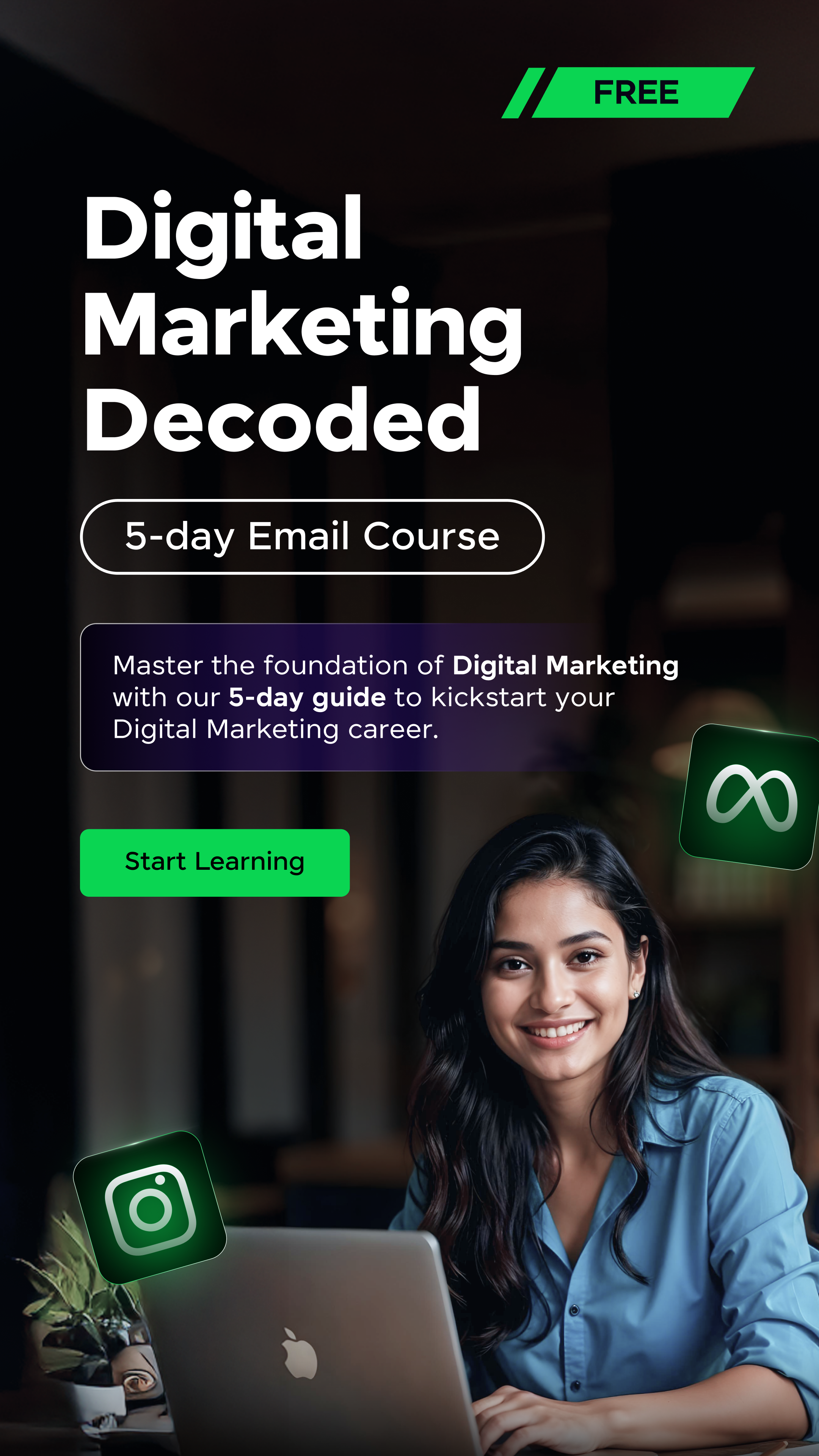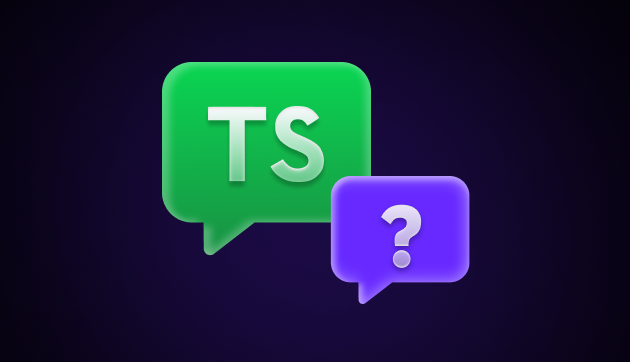
Top 50 Digital Marketing Interview Questions & Answers
Jun 13, 2025 7 Min Read 33061 Views
(Last Updated)
In recent years, digital marketing has emerged as a cornerstone of modern business strategies, enabling organizations to connect with their target audiences in more personalized and impactful ways than ever before. As businesses increasingly recognize the importance of digital channels in reaching and engaging customers, the demand for skilled digital marketing professionals continues to rise.
If you’re aspiring to kickstart your career in digital marketing or looking to transition into this dynamic field, you may encounter interviews that assess your knowledge and expertise in various aspects of digital marketing. To help you prepare effectively and crack commonly asked digital marketing interview questions, we’ve compiled a comprehensive list of the “top 50 digital marketing interview questions, along with detailed answers,” tailored for beginners in this blog.
Table of contents
- Digital Marketing Interview Questions & Answers
- Wrapping Up
- FAQs
- How do I pass a digital marketing interview?
- What is SEM digital marketing?
- What is the KPI in digital marketing?
- What should a digital marketing strategy include?
- What are the seven Cs of digital marketing?
Digital Marketing Interview Questions & Answers
LinkedIn says that Digital Marketing is one of the most in-demand occupations (by the volume of high number of job postings). So, it’s high time you turn your aspirations into a rewarding reality.
Mastering this list of digital marketing interview questions will not only demonstrate your proficiency but also enhance your confidence in tackling interviews within the digital marketing domain. Here we go:

Before we move to the next part, Improve your knowledge of business analytics concepts. You can consider enrolling yourself in GUVI’s Business Analytics and Digital Marketing Course, which lets you gain practical experience by developing real-world projects and covering technologies including Power BI, Excel, SQL, Tableau, Data Visualization, etc.
Additionally, if you would like to explore Marketing Research Techniques through a Self-paced course, try GUVI’s Marketing Research Techniques certification course.
1. What is digital marketing, and why is it important?
Answer: Digital marketing encompasses all marketing efforts that utilize electronic devices and the internet to connect with potential customers. Its significance lies in its ability to reach a wider audience, drive targeted traffic, and generate measurable results for businesses.
2. What are the key components of digital marketing?
Answer: Digital marketing comprises various components, including search engine optimization (SEO), search engine marketing (SEM), social media marketing (SMM), email marketing, content marketing, Video marketing, Remarketing, and more.
Also Read: How to Learn Digital Marketing?
3. Explain the difference between organic and paid search results.
Answer: Organic search results are listings on search engine results pages that appear naturally based on relevance to the user’s search query, while paid search results are advertisements that appear at the top or bottom of the page, marked as “Ad.”
4. What is SEO, and how does it work?
Answer: SEO (Search Engine Optimization) is the process of optimizing a website to improve its visibility and ranking in organic search engine results. It involves various techniques such as keyword research, on-page optimization, link building, and content creation to enhance a site’s relevance and authority.
Learn More: 32 Best SEO Tools For Digital Marketing
5. How do you measure the success of a digital marketing campaign?
Answer: The success of a digital marketing campaign can be measured using key performance indicators (KPIs) such as website traffic, conversion rates, click-through rates (CTR), engagement metrics, return on investment (ROI), and more.
Read More: 8 Steps to Make an Effective Digital Marketing Plan
6. How do you track and analyze website traffic?
Answer: Website traffic can be tracked and analyzed using web analytics tools such as Google Analytics. These tools provide insights into metrics such as the number of visitors, their demographics, behavior on the site, traffic sources, and more.
7. What are some effective strategies for increasing engagement on social media?
Answer: Effective strategies for increasing engagement on social media include posting regularly, creating engaging content (such as images, videos, polls, and contests), interacting with followers, using relevant hashtags, leveraging user-generated content, and analyzing performance metrics to optimize strategies.
8. What is content marketing, and how does it contribute to digital marketing efforts?
Answer: Content marketing involves creating and distributing valuable, relevant, and consistent content to attract and engage a target audience. It contributes to digital marketing efforts by driving organic traffic, establishing thought leadership, building brand awareness, and nurturing customer relationships.
Read More: What is Content Marketing?
9. What are the essential elements of a well-optimized website?
Answer: A well-optimized website should have clear navigation, fast loading times, mobile responsiveness, relevant and high-quality content, optimized meta tags and headings, internal and external links, and a user-friendly design.
10. Can you explain the difference between SEO and SEM?
Answer: SEO is Search Engine Optimization, which focuses on organic methods to improve a website’s visibility in search engine results. SEM is Search Engine Marketing, which involves paid methods like pay-per-click advertising to increase visibility.
Read More: Top 15 B2B Digital Marketing Strategies [Updated]
11. What is Google Ads?
Answer: Google Ads is Google’s advertising platform where advertisers bid on specific keywords to have their clickable ads appear in Google’s search results.
12. What is meant by keywords in SEO?
Answer: Keywords are words or phrases that users enter into search engines. They are crucial in SEO as they help search engines understand the content of a web page and match it with relevant search queries.
13. How does social media impact SEO?
Answer: Social media indirectly impacts SEO by increasing brand visibility, driving traffic to the website, and creating opportunities for backlinks and shares that improve search engine rankings.
14. What is the significance of A/B testing in digital marketing?
Answer: A/B testing involves comparing two versions of a webpage or marketing campaign to see which one performs better. It helps optimize elements like headlines, images, and calls to action to improve conversions.
Also Read: Top A/B Testing Tools | Don’t miss the obvious 4th one
15 . How does email marketing help businesses?
Answer: Email marketing is a direct form of communication with potential and existing customers. It’s used to build relationships, promote products, share information, and drive conversions.
Interview Tip: Develop a solid grasp of digital marketing fundamentals such as SEO, SEM, SMM, email marketing, and content marketing. Familiarize yourself with common digital marketing interview questions and prepare concise, confident responses.
16. What is the buyer’s journey?
Answer: The buyer’s journey consists of three stages: awareness, consideration, and decision. It maps the process a buyer goes through before making a purchase.
17. Could you explain the concept of a sales funnel?
Answer: A sales funnel represents the stages a customer goes through in the buying process: awareness, interest, consideration, intent, and purchase.

Explore: Paid Advertising Vs Content Marketing: A Detailed Comparison
18. What is Google Analytics?
Answer: Google Analytics is a web analytics tool that tracks website traffic and user behavior and provides insights into how users interact with a website.
19. What is a 301 redirect?
Answer: A 301 redirect is a permanent redirect from one URL to another. It’s used to ensure that both users and search engines are directed to the correct page.
20. What is influencer marketing?
Answer: Influencer marketing involves partnering with individuals who have a significant following on social media to promote products or services.

21. How does Pay-Per-Click (PPC) advertising work?
Answer: PPC advertising is a model where advertisers pay a fee each time their ad is clicked. It’s a way to buy visits to your site rather than earning them organically.
22. What is a responsive web design?
Answer: Responsive web design ensures that a website’s layout and content adapt to different screen sizes and devices, providing an optimal user experience.
Explore: Mastering Responsive Design: Tips and Tricks
23. What is a call-to-action (CTA)?
Answer: A call-to-action is a prompt that encourages users to take a specific action, such as clicking a button, signing up, or making a purchase.

Interview Tip: Clearly articulate your thoughts and ideas, demonstrating your ability to strategize, analyze data, and solve problems.
24. How does social media engagement impact a brand?
Answer: Social media engagement, such as likes, shares, comments, and retweets, indicates the level of interaction and interest people have in a brand. Higher engagement often leads to increased brand visibility and loyalty.
Read More: 16 Types of Digital Marketing
25. What is remarketing?
Answer: Remarketing (also known as retargeting) involves showing targeted ads to users who have previously visited your website but didn’t convert, encouraging them to return and take action.
26. How does voice search impact SEO?
Answer: Voice search requires a conversational approach to keywords and content since users tend to use more natural language in their queries.
Know More: Top 10 SEO Techniques For Better Ranking
27. What is Google My Business?
Answer: Google My Business is a free tool that allows businesses to manage their online presence, including their appearance on Google Maps and local search results.
28. What is the significance of long-tail keywords in SEO?
Answer: Long-tail keywords are specific and longer phrases that have less search volume but are highly relevant. Targeting them can help attract more targeted traffic.
29. How does social media help in brand building?
Answer: Social media platforms provide opportunities to engage with the audience, build brand awareness, showcase the brand’s personality, and create a loyal community.
Read More: The Scope of Digital Marketing
30. What are the key components of an effective social media strategy?
Answer: An effective social media strategy includes defining goals, identifying the target audience, selecting appropriate platforms, creating engaging content, scheduling posts, and measuring results.
31. What is a Content Calendar?
Answer: A content calendar outlines the schedule for creating and publishing content across various digital platforms. It helps maintain consistency and organization.
Must Read: The 5C’s of Effective Content Marketing: A Deep Dive
32. What is the role of hashtags in social media marketing?
Answer: Hashtags categorize content and make it discoverable to a wider audience interested in similar topics. They help increase the reach and visibility of posts.

33. How do you measure social media engagement?
Answer: Social media engagement is measured by likes, shares, comments, retweets, clicks, and other interactions on posts. Engagement rates help assess the effectiveness of content.
Interview Tip: Highlight relevant experience, projects, or campaigns that demonstrate your skills and knowledge.
34. What is programmatic advertising?
Answer: Programmatic advertising involves using automated systems to buy and place digital ads in real time based on predefined parameters and audience targeting.
35. How can you improve a website’s conversion rate?
Answer: To improve conversion rates, focus on clear CTAs, simplified forms, improved site speed, trust signals, A/B testing, and customer-focused content.
36. How is email marketing important for digital marketing strategies?
Answer: Email marketing involves sending targeted emails to a list of subscribers, nurturing leads, promoting products, and building relationships.
Read About the Top 15 Growth Marketing Strategies
37. What is a lead magnet?
Answer: A lead magnet is a valuable incentive, such as an ebook, whitepaper, or free trial, offered to visitors in exchange for their contact information.

38. How do you prevent email campaigns from going to the spam folder?
Answer: Avoid spam trigger words, use a recognizable sender name, maintain a healthy sender reputation, include an unsubscribe option, and follow email marketing best practices.

39. What is the importance of personalization in digital marketing?
Answer: Personalization tailors content and messages to individual users, increasing engagement, relevance, and the likelihood of conversions.
Read More: Best Way to Learn Digital Marketing
40. How can you optimize landing pages for better conversions?
Answer: Optimize landing pages by aligning content with the ad’s message, using compelling headlines, clear CTAs, minimal distractions, social proof, and a mobile-responsive design.
41. Differentiate between Inbound and Outbound Marketing.
Answer: Inbound marketing focuses on attracting and engaging customers through valuable content, while outbound marketing involves reaching out to customers through traditional advertising methods.
Interview Tip: Ask Questions to show your interest and curiosity by asking insightful questions about the company, role, and industry.
42. What is ROI in digital marketing?
Answer: ROI (Return on Investment) in digital marketing measures the profitability of a campaign by comparing the amount invested to the revenue generated.
43. How do you optimize a website for search engines?
Answer: SEO optimization involves on-page and off-page tactics such as optimizing content, meta tags, and URLs, improving site speed, acquiring quality backlinks, and ensuring mobile-friendliness.
Must Find Out Digital Marketing Best Practices
44. What is Google PageRank?
Answer: Google PageRank was an algorithm that ranked web pages based on their importance. It’s no longer publicly visible, but the concept of backlinks and authority still influences SEO.
45. What is the importance of mobile optimization in digital marketing?
Answer: Mobile optimization ensures that websites and content are designed to provide a seamless experience on mobile devices, as a significant portion of online users browse on mobile.
46. What is User-Generated Content (UGC), and how can it be leveraged?
Answer: UGC is content created by consumers rather than brands. It can be leveraged by sharing user testimonials, reviews, photos, and stories to build credibility.
47. What are backlinks and why are they important for SEO?
Answer: Backlinks are links from other websites to yours. They indicate credibility, authority, and trustworthiness to search engines, positively impacting SEO.
Read More: The Top 15 Most Important SEO Ranking Factors
48. How do you identify the target audience for a marketing campaign?
Answer: To identify the target audience for a marketing campaign, you can conduct market research, analyze customer demographics and behavior, create buyer personas, and leverage data from past campaigns.
49. What is the ideal posting frequency on social media?
Answer: The ideal posting frequency on social media varies depending on the platform and audience preferences. Generally, posting once or twice a day on platforms like Facebook and Instagram and several times a day on Twitter is recommended.

Interview Tip: Follow Up by sending a thank-you email expressing appreciation for the opportunity and reiterating your interest in the position.
50. How is storytelling important in content marketing?
Answer: Storytelling in content marketing helps humanize brands, evoke emotions, capture attention, and build meaningful connections with the audience, ultimately driving engagement and loyalty.
Read More: 8 Best Digital Marketing Courses for Everyone
Wrapping Up
As you progress through your journey into digital marketing, mastering the fundamentals and staying abreast of emerging trends is crucial for success in this dynamic field. By familiarizing yourself with the top 50 digital marketing interview questions and their answers discussed in the blog, you’ll not only be better equipped to ace your interviews but also deepen your understanding of digital marketing concepts and strategies.
We hope this blog will help you tackle all the digital marketing interview questions in the future. Remember to stay curious, keep learning, and embrace the challenges and opportunities that come your way. Best of luck on your digital marketing journey, and may your career aspirations soar to new heights in the realm of digital possibilities!
Kickstart your career by enrolling in GUVI’s Business Analytics and Digital Marketing Course where you will master technologies including Power BI, Excel, SQL, Tableau, and Data Visualization, and build interesting real-life business-analytics projects.
Alternatively, if you want to explore Marketing Research Techniques through a Self-paced course, try GUVI’s Marketing Research Techniques certification course.
Also Read: Best Product-based Companies for Digital Marketing Freshers
FAQs
Develop a solid grasp of digital marketing fundamentals such as SEO, SEM, SMM, email marketing, and content marketing. Familiarize yourself with common digital marketing interview questions and prepare concise, confident responses.
Clearly articulate your thoughts and ideas, demonstrating your ability to strategize, analyze data, and solve problems. Follow Up by sending a thank-you email expressing appreciation for the opportunity and reiterating your interest in the position.
SEM (Search Engine Marketing) digital marketing involves promoting websites by increasing their visibility in search engine results pages through paid advertising methods such as pay-per-click (PPC) campaigns.
SEM aims to drive targeted traffic to websites, increase brand visibility, and generate conversions through strategic ad placements.
KPI stands for Key Performance Indicator in digital marketing. It’s a measurable value that indicates the success of a campaign or strategy in achieving specific objectives, such as increasing website traffic, improving conversion rates, or enhancing brand awareness.
A digital marketing strategy should include Clear objectives, Target audience analysis, Competitor analysis, Channel selection, Content plan, Budget allocation, Performance measurement, and optimization.
The seven Cs of digital marketing are:
1. Customer
2. Content
3. Competition
4. Community
5. Convenience
6. Consistency
7. Conversion




























![Top 35+ AWS Interview Questions and Answers [2025] 17 aws interview questions](https://www.guvi.in/blog/wp-content/uploads/2025/07/aws-interview-questions.webp)


Good content..very useful